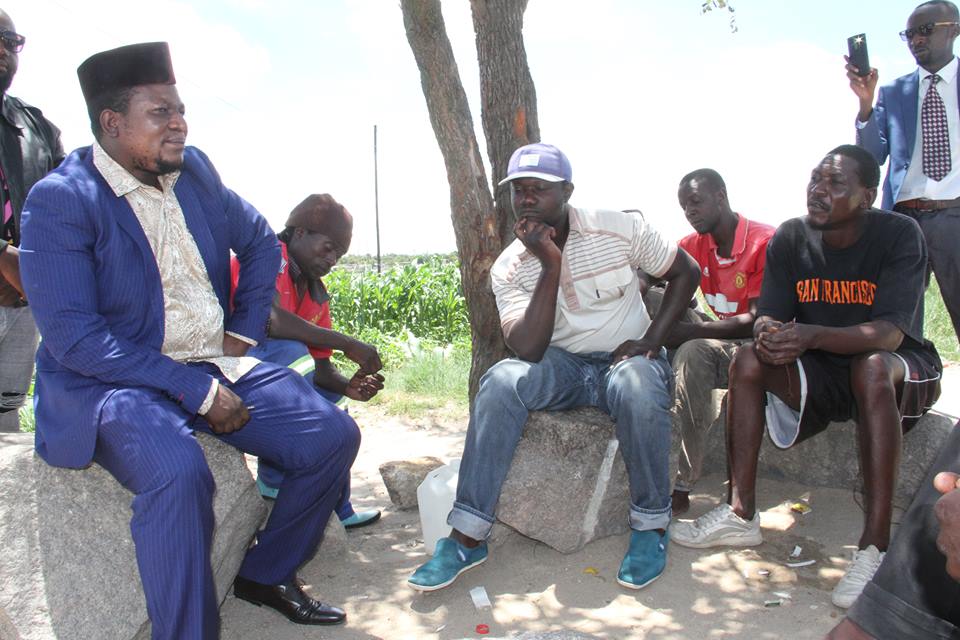By Byron Mutingwende
Popular traditional healer, Sekuru Kamwelo Banda has committed US$500 000 for the setting up of a drug rehabilitation centre that will serve Southern Africa.
Today’s youths have fallen into the habit of abusing drugs, a situation that is threatening the government from reaping the demographic dividend since they constitute more than 60 percent of the population.
Having realised the extent of the menace, Sekuru Kamwelo Banda took it upon himself to set up a drug rehabilitation centre in a selected high-density suburb of Harare.
It is estimated that 60 percent of youths are on illicit drug abuse in Zimbabwe. This problem has even affected prominent Zim Dancehall musicians like Soul Jah Love and Silent Killer.
Sekuru Banda has invited some of these prominent artists to come and get the services at the envisaged rehabilitation centre and make them role model survivors because he has promised to support their work financially.
“I am worried that great talent can go to waste because of drug abuse. Besides being a traditional healer, I am also a proponent of a socially stable society where our youths are of physical and mental wellbeing and healthy enough to participate meaningfully in the economic prosperity of the country.
“If these youths are not restrained from abusing drug, they end up resorting to theft to satisfy their addictions to the various drugs and substances,” Sekuru Kamwelo Banda said.
From a research he undertook, Sekluru Kamwelo Banda said most of the victims of drug and substance abuse are the unemployed youths who spend most of their time idle.
As a panacea, he said the US$500 000 rehabilitation centre, that will be the first of its kind in Zimbabwe and Southern Africa, would provide comprehensive support services.
Popular urban grooves musician, Rockford Josphat aka Rocky is in South Africa where he visited psychiatrists and counsellors following his problems with drug abuse.
Sekuru Kamwelo Banda’s centre will provide psycho-social support and enlist the services of social workers and counsellors at the rehabilitation centre. The Kamwelo Banda (KB) Trust Fund will fund most of the projects at the rehabilitation centre.
Meanwhile, psychologist, Dr. Dixon Sibanda has come up with The Friendship Bench project that offers a brief psychological intervention addressing depression in primary care clinics in Zimbabwe.
The cognitive behavior therapy based intervention (a problem solving approach) is carried out by trained Lay Health Workers.
The Friendship Bench has come up with a training manual that is written in English and Shona. It explains common mental disorders (CMD) and how to administer and score the locally validated questionnaires that assess CMD.
Furthermore, required counselling skills are explained in detail, as is the Problem Solving Therapy (PST) and how to use it with Friendship Bench clients. Topics such as strong emotional reactions, suicide assessment and referral, home visits, supervision and self-care are also discussed in specific chapters.
The Friendship Bench Training Manual will be reviewed and adapted for the scale up of the intervention to over 50 local clinics.
Dr Chido Rwafa, the Deputy Director of Mental Health Services in the Ministry of Health and Child care has said substance related disorders are one of the top three diagnoses presenting to mental health services countrywide. These disorders are wrecking havoc in our families and communities and over-stretching an already over burdened health system, she said.






